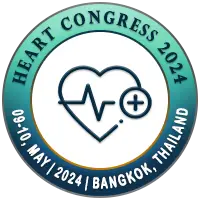
Keita Horitani
Kansai Medical University, JapanTitle: Empagliflozin's Cardioprotective Role Through Modulation of CCL2 Expression in Cardiac Fibroblasts, Attenuation of Inflammation, and Mitigation of Heart Failure Progression
Abstract
Diabetes and heart failure reciprocally exacerbate each other's prognosis, forming a detrimental cycle. While many studies have highlighted their interrelationship, the definitive evidence proving that rigorous diabetes management can improve heart failure outcomes is still insufficient. A promising treatment approach revolves around Sodium-glucose co-transporter-2 (SGLT2) inhibitors, a drug class initially developed for type 2 diabetes. Notably, the EMPA-REG OUTCOME trial demonstrated that Empagliflozin, an SGLT2 inhibitor, significantly reduced cardiovascular mortality and heart failure-related hospitalizations. However, the precise cardioprotective mechanisms of SGLT2 inhibitors remain unclear. Our research seeks to elucidate these mechanisms by investigating the effects of Empagliflozin in a mouse model of heart failure. Our research examined the cardioprotective effects of Empagliflozin, an SGLT2 inhibitor, in a mouse model of transverse aortic constriction (TAC) induced heart failure. Following a two-week administration of Empagliflozin post-TAC, preserved cardiac function and diminished left ventricular hypertrophy were observed, compared to controls. Concurrently, there was a reduction in heart failure markers and fibrosis. Empagliflozin also significantly lowered the count of bone marrow-derived macrophages in the heart, suggesting suppression of inflammation.
Additionally, we explored the migration of CCR2-positive macrophages, which are known to bind to the chemokine ligand CCL2. Empagliflozin attenuated the increase in CCL2 expression, stimulated by LPS, in cultured cardiac fibroblasts. These results suggest that SGLT2 inhibitors may alleviate heart failure by modulating the activity of bone marrow-derived macrophages and reducing inflammation following pressure overload, thereby shedding light on the unique mechanistic aspects of SGLT2 inhibitors.
Biography
Keita Horitani completed his Ph.D. at the age of 39 years and M.D. at the age of 25 years from Kansai Medical University, Japan. He is the Assistant professor of Kansai Medical University, Japan. I have over 10 publications so far. I have been awarded some Honors and Awards below.
2016 Sakurane Hiroko Award (Kansai Medical University, Osaka, Japan)
2018 Fujiwara Tomiko Award (Kansai Medical University, Osaka, Japan)
2023 Wada Kiyoko Award(Kansai Medical University, Osaka, Japan)
2023 Best Poster Award (APSC2023 Congress, Singapore)

